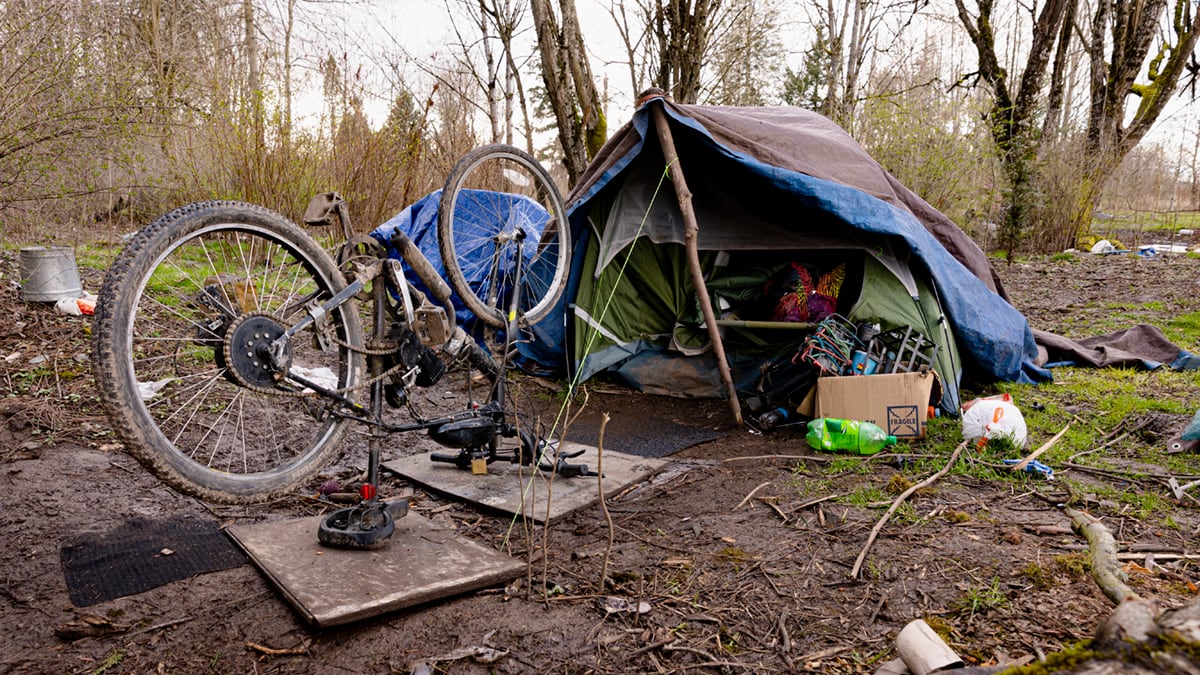The Oregon Senate on Wednesday passed a bill that would allow tents to be pitched on public land without the threat of being criminally punished. It awaits Gov. Kate Brown’s signature.
Sponsored by House Speaker Tina Kotek, House Bill 3115 mandates that cities codify ordinances that protect people from fines and fees for camping on public lands if the local government isn’t providing any other viable alternatives.
Cities have two years to codify those reworked ordinances.
The bill was written in the spirit of the Martin v. Boise ruling, a 2018 U.S. 9th Circuit Court of Appeals decision that bans governments from criminalizing living in public spaces if the local government is not providing enough shelter beds for each homeless person. That ruling applies to other Western states, including Oregon—but cities have argued that their current practices don’t conflict with the ruling.
Portland is one of those cities.
Mayor Ted Wheeler’s office told WW earlier this week that the city’s more assertive sweep protocols instituted in May are in line with the ruling: “This approach to managing the health and safety of public spaces is consistent with Martin v. Boise, which prohibits government from taking criminal enforcement actions against people for the act of sleeping outside when there is no other place to go. The case allows governments to manage the condition and locations of unsanctioned camping, to protect the health and safety of both people experiencing homelessness and the community at large.”
Earlier this week, before the bill passed the Senate, Kotek told WW that Portland has a moral obligation to stop sweeps in order to comply with the Martin v. Boise ruling, even if the city is not legally violating the ruling.
And on Thursday, after the bill passed, Kotek told WW, “My hope is that local governments that have not yet reckoned with the Boise decision will take the opportunity to engage in a transparent, public process to update their ordinances, find ways to expand their shelter capacity, and make the rules clear for all.”
But it’s unlikely the bill will prevent sweeps of Portland homeless camps come July 2023, when cities are required to have codified their policies and ordinances in compliance with the bill.
The city is arguing that it’s already in compliance with the Martin v. Boise ruling. And while Kotek may wish for cities to comply with a larger moral framework underlying the court ruling, that’s not what her bill mandates.
“While this bill does not ban sweeps, the expectation is that its implementation will limit them since it ensures that individuals experiencing homelessness are protected from fines or arrest for sleeping or camping on public property when there are no other options,” Kotek’s office tells WW. “The court ruling and the bill require local communities to refocus on where, when and how people can survive in public spaces.”
So the most likely outcome is that Portland can still sweep homeless camps from public property so long as it doesn’t arrest or fine the people living there.
Civil rights lawyer Juan Chavez told WW that the health and safety angle is one cities have used to justify sweeps.
“What the city has endeavored to do is make this a health and safety thing, and not a punishment thing. ‘We’re not punishing you by moving you out of the sidewalk, we’re cleaning the streets,’” Chavez explains. “You’re not getting a citation or a court date because you’re camping.”
Critics of Martin v. Boise who support broader rights for homeless people say the ruling is a low bar for states to comply with, namely because it creates an impetus for cities to create more shelter beds so they can justify criminalizing homelessness.
Oregon’s bill aimed to avoid that pitfall, asserting that a city’s ordinances and practices must be “objectively reasonable” based on the circumstances.
The bill mandates, “Any city or county law that regulates the acts of sitting, lying, sleeping or keeping warm and dry outdoors on public property that is open to the public must be objectively reasonable as to time, place and manner with regards to persons experiencing homelessness.”
The term “reasonably homeless” does allow cities some leeway in what they deem reasonable.

